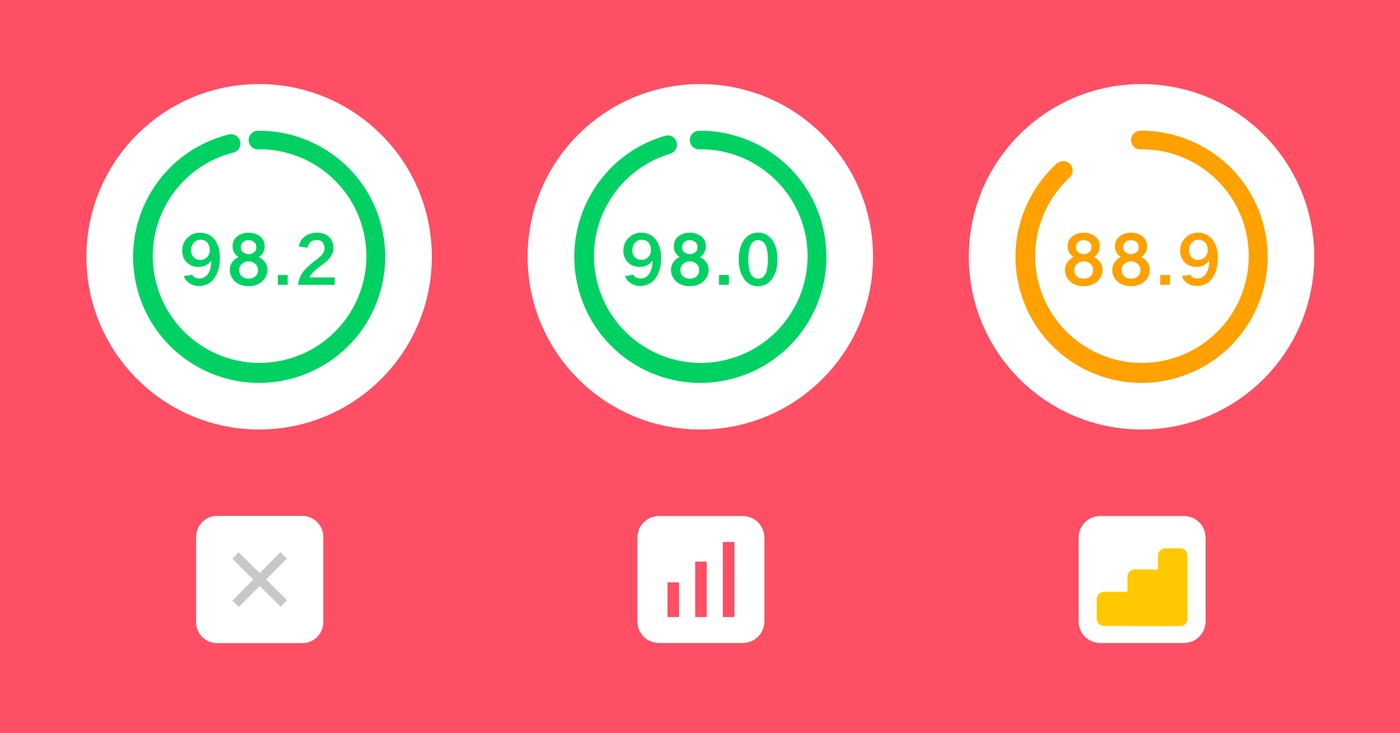There was a time when Google was a quirky startup---founded by two Stanford grads who operated out of a garage, working day and night to get their company off the ground. The company was initially called Backrub and had one product that blew all competition out of the water. Google is the perfect startup story that led to building on the most influential businesses of all time.
Today Google is a multi-mega corporation. It's a data-devouring monster and the embodiment of the internet-era mantra: "Data is the new gold."
It literally turns data into gold. A lot of gold.

Whoever thinks of Google as a search engine is painfully mistaken. Google is an advertising machine. The best advertising machine humanity has ever seen. Over the years, they have built some great products that have achieved monopoly status in their category and given them away for free. Not because they care about you, but because they could get to know you better.
Google wants to know whether you are a man or woman, how old you are, if you are gay or straight, what you buy online and where you live. These data points are then reused to show you ads. Google collects every move you make because the more it knows, the better it can be monetized.
In addition, we have become so dependent on Google that it turned the internet into an online clickbait world in which everyone wants to be answered by almighty Google to get ranked by its algorithm.
But cracks are showing because of a significant trend getting more steam: Consumers demand privacy---Google's biggest nightmare.
And their demands are being heard. EU member states are showing their teeth by banning Google Analytics until Google no longer violates EU privacy laws.
Google Analytics is one of the best free tools Google has ever created. 55% Of the existing websites use an analytics tool, and 85% of those use Google Analytics. It is the default analytics tool for the internet, but with the privacy issues going on and the change to GA4, I asked myself this question: Do I really need Google Analytics?
Here is why I believe most of us can live without Google Analytics.
- Why now?
- Why you should remove Google Analytics
- Google Analytics is an overly complex analytics tool
- Cookie banners hinder your website UX
- Google Analytics affects your website performance
- Google Analytics data is inaccurate
- Google Analytics requires a lengthy Privacy policy
- Stop collecting everything for the sake of collecting data
- Let users know you care about their privacy
- Be part of the solution, not the problem
- Why do we care?
We're covering a lot of ground so let's dive in!
Why now?
Before diving into the why, we should ask ourselves why now? Why is this the moment to reevaluate the use of Google Analytics for your business? Two reasons:
- Google is changing to a different version of Google Analytics. The current version you are used to will stop collecting data in July 2023.
- Some EU member states already block Google Analytics, and more will likely follow.
Google is sunsetting Universal Analytics in favor of GA4
At the beginning of March this year, Google announced that it would sunset Universal Analytics in favor of GA4. This was a huge blow for marketeers that have been relying on Universal Analytics for quite some years now. New product developments are usually cheered upon. However, GA4 has so far only received backlash.
With Universal Analytics, marketeers could pull up conversion rates, customer lifetime value, and session duration. But all those data points will disappear with GA4.
The abrupt change has been driven by "a changing business environment," according to Google. If you read between the lines, they acknowledge that the current way of tracking website visitors across the internet is not sustainable in the long term.
In addition, when Universal Analytics is removed in July 2023, they'll have just one year of look-back data. This signals even more that Google understands its privacy concern and deliberately rejects universal analytics as a privacy risk. It wants to get rid of the old system and start with a clean slate.
However, it's debatable how clean that new slate actually is. In a recent blog post, we investigated if GA4 is actually privacy friendlier than its predecessor. We concluded that it is not the case.
Google Analytics privacy issues
The second reason is that Google Analytics is facing charges from EU member states due to violating privacy laws. Last Friday, Garante (Italy) became the third data protection agency after DSB (Austria) and CNIL (France) to ban Google Analytics. More EU member states will likely follow. GDPR finally shows its teeth after Schrems II invalidated the privacy shield in July 2020.
(Update: the Finnish and Norwegian authorities followed- although the Norwegian decision is yet preliminary. The Danish privacy authority also embraced a hard stance in a press release.
Last but not least, the Irish privacy authority enforced the GDPR rules on data transfers against Meta by ordering the company to suspend transfers for its Facebook social network. The case resulted in a record €1.2 billion fine and involved the European Data Protection Board- that is, the institution where all European sit and discuss cross-border cases. We discussed this key decision in depth here
In short: Data transfer from the EU to the U.S. violates GDPR law. This is because U.S. companies like Google qualify as an "Electronic communication service provider" that is obliged to hand over their data to the U.S. intelligence service when requested. This means that the U.S. government has access to personal data of EU citizens.
GA4 does not fix this problem. Even if it anonymizes IP addresses, it would still be considered personal data, given Google's ability to enrich this data with other data points to single out an individual website visitor.
Above, we explained the 'why now.' In the second part, we'll explain the 'why.'

Why you should remove Google Analytics
Google has been the default analytics tool since the existence of analytics tools. Everyone from the smallest blogger website to fortune 500 companies use Google Analytics. It seems odd that one product is the best fit for so many different use cases. Here is why I believe it might not be the right fit for all of us.
Google Analytics is an overly complex analytics tool
Google Analytics is an overly complex tool that welcomes you with multiple dashboards that are difficult to navigate. To satisfy their biggest and most avid users, Google has created a monstrous product that collects as much data as possible by default. While only a handful of users actually need those deep analytics (and do they really?), 95% could do with a lot fewer insights.
For a lot of organizations knowing where your traffic is coming from, which blogs are doing well and how many times certain events occur on your website would satisfy. I dare to argue that you can adequately navigate your business by keeping track of your most basic stats.
You don't need custom reports to see what's happening on your website and adapt accordingly.
Cookie banners hinder your website UX
Google Analytics provides very deep insights into user behavior. It does this by collecting enormous amounts of data points and installing tracking mechanisms in your browser.
Because of the ePrivacy Directive, EU users need to give consent before such a tracking mechanism is installed. Before interacting with the website, users need to interact with a cookies banner. This is often not a simple 'yes' or 'no,' but a simple 'yes' and an incredibly difficult way to say 'no.' The deceptive nature of cookie banners will likely be restricted to make it easier for visitors to reject cookies.
Without looking at this from an ethical standpoint, a cookie banner creates a worse user experience.
Cookie banners are annoying and hinder visitors from exploring your website. It has the same effect as a slow website. People are annoyed or impatient and navigate away.
Google Analytics affects your website performance
To get an overview of your website analytics, you need to install a script on the pages of your website that register page views.
Scripts differ in size, and the bigger the script, the higher the impact on page load time. Bigger scripts slow down websites. The Google Analytics script (45kb) is a 'heavyweight' among web analytics scripts. In comparison, Simple Analytics' script is only (3kb).
We ran a website performance test using Google Lighthouse. We found that the difference in website performance of 10 basis points favors websites using Simple Analytics instead of Google Analytics.

A fast-loading website has a few benefits that are worth noting. Besides an increased user experience and a lower bounce rate, it is also good for SEO. Core web vitals is one of the key metrics that Google looks at to rank pages in their search engine. This means that using Google Analytics might actually lower your search rankings and result in fewer website visitors because it slows down your website.
Add to the mix that you need to interact with a cookie banner before users can navigate to your website, and your perfect user experience is down the drain.
Google Analytics data is inaccurate
The fact that Google Analytics data is inaccurate sounds counterintuitive. It's the most powerful analytics tool that collects as much data as possible. However, there are a few reasons that make Google Analytics inaccurate.
Cookie banners Every website visitor interacts with the cookie banner on your website. If the visitor does not give consent to be tracked, you have no idea that this visitor has been on your website. More visitors will have visited your website than Google Analytics will show you. This discrepancy will only continue to grow as more and more visitors don't want to be tracked.
Adblockers More and more internet users are using ad-blockers because (yes, there we go again) users demand more privacy. As the name suggests, ad-blockers block ads. However, they also block scripts that install tracking mechanisms. Most ad-blockers block the Google Analytics script. Visitors that have ad-blockers installed won't show up in your stats.
Referral spam Referral spam has been a big problem for Google Analytics. Referral spam looks like genuine traffic to your website, but it's actually fake. Spammy advertisers send fake visitors to your website in two ways:
- Bot referral spam: Bots visiting your website and making Google Analytics register it
- Ghost referral spam: Bots totally bypass your website and directly hit the Google Analytics server
It's a way to draw attention to their own website. The spam URL will be shown in your Google Analytics dashboard to make you curious about what it is or what they are selling. Besides the fact that it's really annoying, it also really skews your data.
Data sampling Google Analytics uses a technique called data sampling to save server capacity and keep costs down. Data sampling means that only a subset of your actual traffic is processed. From this subset, Google Analytics predicts what your total traffic would look like. This is a cost-effective way to estimate website analytics. However, it is not nearly as accurate.
Google Analytics requires a lengthy Privacy policy
Google specifies the need for a privacy policy in its terms of service. In addition, privacy policies are also a legal requirement. Google Analytics collects personal information of your website visitors, and you need to disclose this data processing activity. The privacy policy needs to be published to provide notice of the use of trackers and identifiers.
Stop collecting everything for the sake of collecting data
Google Analytics has always been the default for almost every website. We've grown accustomed to the amounts of data collected, and we value this as a necessity.
"Collect as many data points as possible cause then we are considered a data-driven organization."
This has been the mantra for many organizations for way too long and needs to change. We need to rethink what data we really need to navigate our business.
Do we really need custom reports and 95 different dashboards? We need a mindset shift from collecting as many data points as possible to only collecting necessary data points that are relevant for your specific KPIs.
However, the problem is that we have gotten accustomed to the capabilities of Google Analytics and the amounts of data available. This has resulted in the fact that privacy-friendly alternatives that are more high-level oriented feel too simplistic or not sufficient to do the job.
There will always be a trade-off between data and privacy, and organizations must adopt this new mindset to stay ahead.
Let users know you care about their privacy
Selling is about trust. The fact that people buy something from you means that they trust you. That's why it's always good to show the person or people behind a business. This builds trust. People still value buying from people, not from faceless organizations.
Caring about your customers' privacy builds trust. The fact that you are not selling your website visitors' data to Google signals that you care.
You want to show that you care about your customers because only then will your customers start caring about you and stay loyal customers who might even tell their friends about your product. Taking care of your users' privacy will do the same.
Be part of the solution, not the problem
We believe it's not only a matter of staying within the law. For us, it goes beyond that. We believe you can still make decisions based on website data without needing to collect personal data or track individuals. Privacy is a human right that should be taken seriously.
By moving away from Google, you help create a more independent web that is more friendly to internet users. You help to redistribute the power away from the biggest advertising machine that has ever existed.
Be part of the solution, not the problem and bin Google Analytics.

Why do we care?
Consumers demand privacy. Internet users have been left in the dark for the better part of the internet era, but this is changing.
More and more website visitors decline to be tracked. The use of ad-blockers is growing rapidly, and even Google acknowledged that their way of collecting data with Universal Analytics is not sustainable anymore.
We want to be part of the change for good. That's why we built Simple Analytics. To provide you with the insights you need while protecting the privacy of your users and being 100% GDPR compliant. Feel free to give us a try.
